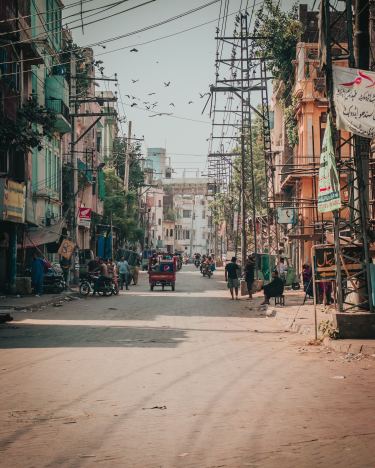
A court in Lahore has acquitted two Christian teenagers falsely accused of blasphemy, bringing an end to a two-year legal ordeal that uprooted their families and put their lives at risk.
Adil Babar and Simon Nadeem were just 18 and 14 when they were arrested in May 2023 under Pakistan’s blasphemy laws. The charges stemmed from a minor neighbourhood dispute but carried potentially deadly consequences.
On Tuesday (8 July), Magistrate Sohail Rafique of Cantt Courts, Lahore, acquitted both men—now 20 and 16—of the charge under Section 295-A of Pakistan’s Penal Code, which pertains to “deliberate and malicious acts intended to outrage religious feelings.”
Supreme Court Advocate Naseeb Anjum, who represented the young men, welcomed the ruling, calling the original charges “entirely baseless.”
Escalation over a joke
The case began with a minor altercation on 18 May 2023. According to Babar’s father, Babar Sandhu Masih, the two boys were chatting playfully outside their home in Lahore’s Qurban Lines neighbourhood when a local man, Zahid Sohail, accused them of insulting the Prophet Muhammad.
Sohail initially claimed he overheard disrespectful remarks. However, Masih said the accusation quickly changed: when pressed, Sohail alleged that one of the boys had named a puppy “Muhammad Ali” and laughed about it.
“No one in our street has dogs,” said Masih. “There was no puppy, and no such comment. The accusation was completely fabricated after he failed to convince local elders.”
Despite the lack of evidence, police raided the family home that evening and arrested both boys. They were initially charged under Sections 295-C and 298-A, offences punishable by death or life imprisonment. The more severe charges were later dropped following a successful bail appeal.
Anjum argued that the case could not proceed under Section 295-A without prior approval from the provincial or federal government, as required under Section 196 of the Criminal Procedure Code. The court agreed, ruling the prosecution invalid.
Impact and wider concern
The accusations triggered widespread fear in the Christian community. Both families were forced to relocate due to threats and mob tensions in the area.
“This ordeal highlights the urgent need for procedural reforms,” said Anjum. “Many innocent people spend years in prison or live in hiding after being accused, especially religious minorities.”
Blasphemy accusations in Pakistan, even when proven false, have long been used as a tool for settling personal scores. Just a rumour can ignite mob violence, and dozens have been killed extrajudicially in recent decades.
In 2024 alone, 344 new blasphemy cases were reported, according to the Centre for Social Justice. Of those accused, 6% were Christians, 9% Hindus, and 14% Ahmadis. Though the majority of cases involve Muslims, minority communities face disproportionate danger.
Pakistan ranks 8th on Open Doors’ 2025 World Watch List of countries where Christians face the most severe persecution.
Call for change
While this acquittal offers a rare glimmer of justice, rights advocates say the wider problem remains. The country’s blasphemy laws are routinely weaponised, enabling religious persecution and curbing freedom of speech.
“There’s a dire need to ensure that no one can exploit these laws without serious scrutiny,” said Anjum.
As for Adil and Simon, their acquittal marks the end of a legal battle, but not necessarily the danger. Their families remain in hiding, and their futures uncertain.
Adapted and rewritten from CDI.




